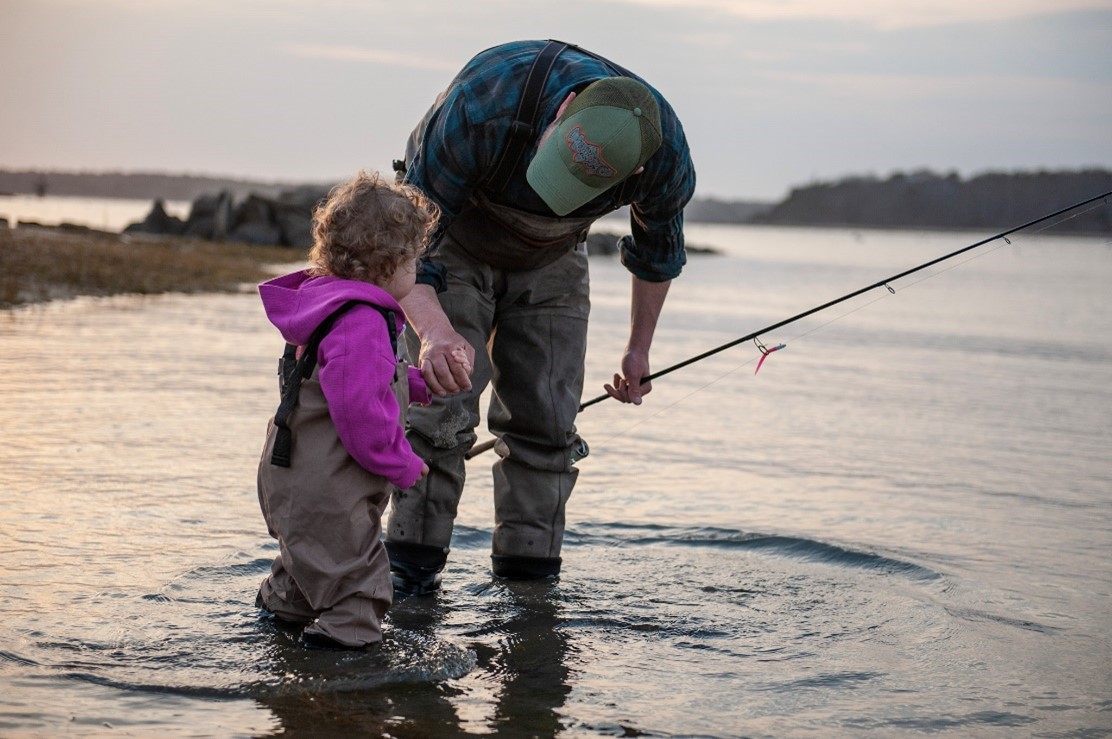In August, I attended the Mid-Atlantic Fishery Management Council (MAFMC) meeting in Philadelphia, PA. Most of this meeting included participation from the Atlantic States Marine Fisheries Commission because the two bodies jointly manage several recreationally important species. The focus of the meeting was setting fishery specifications (catch limits) for 2023. This specifications process is different from previous years because managers will be using a new harvest control rule to assist in setting recreational bag, size and season limits later this fall.
Bluefish
Bluefish is not experiencing overfishing but is overfished and is currently under a seven-year rebuilding plan. Because bluefish is in a rebuilding plan, it is excluded from the new harvest control rule approach. Instead, managers set status quo recreational measures for 2023. At this meeting, the Council considered but rejected increasing the for-hire bag limit. ASA opposes this proposal because data does not support the need for a higher bag limit, and we believe regulations should be the same between for-hire and private anglers to provide equal access to a shared public resource.
Recreational Summer Flounder Management Strategy Evaluation
For the last two years, I participated as a core stakeholder working group member tasked with identifying management strategies that would convert discards into landings in the recreational sector. Overall results demonstrate that several management alternatives to the status quo (e.g., slot limits) can reduce the number of discards, increase the keeper:discard ratio and promote recreational opportunities that would convert discards into landings. The Council and Board will use this information and approach as part of setting recreational measures for summer flounder this fall as part of the 2023 fishery specification process.
Summer Flounder 2023 Specifications
Summer flounder is not overfished and overfishing is not occurring. Spawning stock biomass is 86% of its target level and is currently in an increasing trend. There will be a minor increase to the annual catch limit for the recreational sector in 2023. Specific bag, size, and season limits for 2023 will be established later this fall using the new harvest control rule approach and the outcomes of the management strategy evaluation discussed above.
Scup and Black Sea Bass 2023 Specifications
Neither scup nor black sea bass are overfished and overfishing is not occurring. Scup spawning stock biomass is 195% of its target level, indicating a very healthy stock. Black sea bass spawning stock biomass is 206% of its target level, also indicating a very healthy stock. Despite a healthy stock status for both scup and black sea bass, the recreational management measures were reduced in 2022 to address overages of the annual catch limit for both species. Specific bag, size, and season limits for 2023 will be established later this fall using the new harvest control rule approach. Through the specification process, ASA will continue to advocate for bag, size and season limit changes that better reflect the healthy stock status for both scup and black sea bass
Council Comments on Hudson Canyon Marine Sanctuary Proposal
The MAFMC reviewed a previously submitted comment letter regarding the sanctuary proposal. As detailed in their letter, “the Council tentatively supports a Hudson Canyon sanctuary designation contingent on ensuring that such a designation will not conflict with existing fishery management authorities or result in additional restrictions on commercial and recreational access to the area. If a decision is made to move forward with the designation of the Hudson Canyon National Marine Sanctuary, we urge that fishing activities be excluded from the list of Activities Subject to Regulation in the designation document.” The Council’s comments closely resemble our recreational fishing and boating coalition comment letter on the Hudson Canyon Sanctuary proposal.
NOAA Proposes Vessel Speed Restriction Along Atlantic Coast to Protect Right Whales
NOAA is proposing to expand current speed restriction areas to reduce vessel collision mortality on endangered right whales. NOAA’s preferred alternative creates seasonal speed zones ranging from Massachusetts to Florida throughout the winter and spring months. The speed restrictions (10 knots or less) would apply to all recreational vessels 35 feet or larger. The Council briefly discussed the proposed rule and will be submitting comments to NOAA through follow up discussions of the Council’s Protected Resources Committee by the September 30th comment deadline. ASA is currently working in a coalition to provide input to NOAA that balances the importance of protecting endangered right whales with the expected impacts of the new speed restrictions on recreational fishing and boating across the Atlantic coast.
For more information on ASA’s Atlantic efforts, feel free to contact me, Michael Waine, Atlantic Fisheries Policy Director or go to Keep America Fishing.
Share This Article, Choose Your Platform:
Recent Posts



